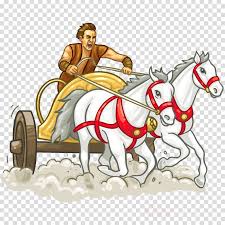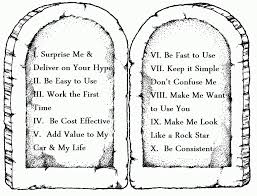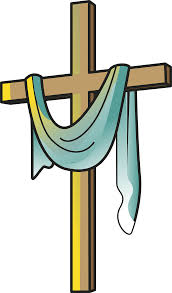Ephesians 5:1-2 - Therefore be imitators of God, as beloved children. And walk in love, as Christ loved us and gave himself up for us, a fragrant offering and sacrifice to God.
These first two verses of chapter 5 should have been at the tail end of chapter 4. In 4:32 the apostle ends by admonishing the Ephesians to "be kind to one another, tenderhearted, forgiving one another as God in Christ forgave you". 
He then goes on in 5:1-2 to say therefore or because God has been so exceedingly good and merciful in pardoning your sin, you should imitate him and forgive others showing kindness and love at all times. Christ is to be our example and we are to imitate him, just as any small child will imitate what she sees her earthly father doing.
It is interesting that Paul describes Jesus as both an offering and a sacrifice. Do you know the difference between the two?
The word 'sacrifice' implies the shedding of blood. The life of every living creature is in its blood. By spilling the blood of the animal during sacrifice, the sinner recognized and acknowledged that he was the one who deserved to die, but a substitution was being made on his behalf.
An offering is simply a gift given to God and the implication is that the gift is bloodless.
Here in Ephesians, Jesus is described as both. His life was an offering to God because he was in perfect obedience, saying and doing only what the Father directed. He offered his own will and his own desires as an offering to the heavenly father. As you are already aware, his life was a bloody sacrifice as he died on the cross.
Jesus' offering and sacrifice were a sweet smelling savor to God. This phrase is found in the Old Testament and refers to a smell of satisfaction; a gift well pleasing to God not only because of what was given, but also because of the attitude or spirit in which it was offered.
I like that last bit - the offering is pleasing to God because of the attitude or spirit in which it was offered. In second Corinthians Paul says that God loves a cheerful giver. If you give something grudgingly, it taints or ruins the gift. Have you ever given a tainted gift?
What kind of sacrifices have you made to God recently? Have you considered surrendering your will and your desires to him?
Ephesians 5:3-4 - But sexual immorality and all impurity or covetousness must not even be named among you, as is proper among saints. Let there be no filthiness, nor foolish talk nor crude joking, which are out of place but instead let there be thanksgiving.
Have you ever been driving down the road in your car, just enjoying the day, listening to the radio when all of a sudden a horrible smell hits you? Then you try to decide what they smell is; maybe farm animal excrement or a skunk or a dead deer. You might even check to see if it is the one of the passengers in your car! You keep driving hoping the awful fumes will soon dissipate!

With that in mind, ask yourself this: If obedience and holiness are a sweet smell in God's nostrils, what do you suppose sexual immorality and covetousness smell like? Do you want to offer God a smell like that?
(Sexual impurity and greed seem like two entirely different things but in reality they are not. Both vices exhibit dissatisfaction for what God says is proper and an unnatural craving for more than what you should have).
Overall, what do your actions and your attitudes smell like? Is it time to clean some things up?
Verse four is a warning against unseemly talk. The Bible has an awful lot to say about our speech. We could do a whole study on it, but we won't. James sums it up nicely when he says in 3:10, "From the same mouth come blessing and cursing. My brothers, these things ought not to be so". This is the same point Paul is making. As saints of God, we are to avoid any manner of speech that is not encouraging, edifying or thankful. 
Consider just the things you said today. How much of your speech falls under the category of blessing? How much did not? I bet we all have room for improvement in the area of speech.
Ephesians 5:5-6 - For you may be sure of this, that everyone who is sexually immoral or impure or who is covetous (that is an idolater), has no inheritance in the kingdom of Christ and God. Let no one deceive you with empty words, for because of these things the wrath of God comes upon the sons of disobedience.
In the next few verses the apostle gives us reason and motivation to choose what is holy and reject that which is evil.
He begins in verse five by warning that idolaters of any kind have no inheritance in the kingdom of God. An idol is anything that we put in the place of God. In our generation, it could be money, our kids, TV, our job, sports, electronics, the pursuit of a hobby, etc. Since idolatry can keep us from entering heaven, we must anxiously examine our own lives and make sure we are free of the sin of idolatry.
Others will tell you that idolatry is harmless and God will overlook it. Don't fall into that trap! God's mercy will allow the sinner multiple opportunities for repentance. Do not mistake His delay of judgment as an approval of sin, for in due course his wrath will come upon those who are disobedient. If you find that you have an idol in your life, repent right away. Then begin to take steps to get rid of it without delay!
Ephesians 5:7-10 - Therefore do not become partners with them; for at one time you were darkness but now you are light in the Lord. Walk as children of light (for the fruit of light is found in all that is good and right and true), and try to discern what is pleasing to the Lord.
At one time, the Ephesian believers were slaves to sin. They were ignorant of the ways of God and practiced the abominations that are being discussed here. But, now that they have been enlightened [redeemed] by Christ and been made aware of the evil of idolatry, evil speaking, etc, they are expected to forsake these practices and live [walk] as true children of God.
Those who are redeemed have the Holy Spirit living in them. The working of the Holy Spirit produces spiritual fruit in the life of the believer. This fruit is listed in Galatians:
Galatians 5:22-23 - But the fruit of the Spirit is love, joy, peace, longsuffering, gentleness, goodness, faith, meekness, self-control: against such there is no law.
Every believer, who lives by the gospel and has the indwelling Holy Spirit, should be well able to please the Lord. This includes you and I. Each of us should be able to examine ourselves and see if we have the fruit of the Spirit in our lives. We should pray for him to reveal to us areas in which we are prone to idolatry. The Holy Spirit is our teacher, our comforter and our guide in this life. Let's willingly partner with him.
Ephesians 5:11-12 - Take no part in the unfruitful works of darkness, but instead expose them. For it is shameful even to speak of the things that they do in secret.
The Ephesians were greatly involved in the practices of magic and sorcery which included secret rites and incantations. The initiates of these rites were obliged to keep the group's secrets, on pain of death (see Acts 19:17-19). This is probably what Paul is referring to when he speaks of shameful things they do in secret. Obviously, these works of darkness are unfruitful because they are devoid of any true wisdom or power. They do not draw men closer to God, but drive them further away. Paul implies that by concealing or ignoring these practices, we too are sinning. He maintains that it is the duty of the true Christian to expose or testify against these practices and stand for the truth of the gospel.
How do you feel about that? Do you think you are sinning if you say nothing in the face of such evil as abortion, gay marriage, and other sins of our society?
Ephesians 5:13-14 - But when anything is exposed by the light, it becomes visible, for anything that becomes visible is light. Therefore it says, "Awake, O sleeper, and arise from the dead, and Christ will shine on you".
The overall meaning of these verses is that when you shed the light of truth [expose or testify against] on the works of darkness, their true nature is demonstrated or made known. This is what the gospel does – expose sin for what it really is.

A spiritual sleeper is someone who allows sin to live in the dark places of their lives. They do not expose those sins to the light of the gospel so that they can be dealt with.
A spiritual sleeper is someone who allows sin to live in the dark places of their lives. They do not expose those sins to the light of the gospel so that they can be dealt with.
How do you know if you are a spiritual 'sleeper'?
- If you engage in things you know to be sin (sexual sins, unforgiveness, fraud, drunkenness, anger, etc) without your conscience bothering you, you are asleep.
- If you never feel any conflict with temptation, you are asleep.
- If you are too busy to pray, you are asleep.
- If you never feel convicted by reading the word of God, you are asleep.
- If you have no compassion for others, you are asleep.
- If you never hear God speaking to you, you are asleep.
- If your life looks exactly like the life of unbelievers, you are asleep.
If you find yourself in any of these situations, WAKE UP! Repent and call upon God to enlighten you. He specializes in bringing the dead to life, and he will restore you spiritually.




 See the picture? Jesus, knowing he was the Son of God, was still willing to take on the humble/lowly role of a servant.
See the picture? Jesus, knowing he was the Son of God, was still willing to take on the humble/lowly role of a servant. 





 Paul's adversaries (mainly the devout Jews) claimed that his imprisonment was proof that he was essentially a liar and a blasphemer. After all, if God really wanted the Gentiles to be saved, why weren't things going well for Paul? On the other hand, Paul's supporters assert that his imprisonment was a confirmation of the truth. If the other apostles suffered persecution and imprisonment for sharing the gospel, why not Paul?
Paul's adversaries (mainly the devout Jews) claimed that his imprisonment was proof that he was essentially a liar and a blasphemer. After all, if God really wanted the Gentiles to be saved, why weren't things going well for Paul? On the other hand, Paul's supporters assert that his imprisonment was a confirmation of the truth. If the other apostles suffered persecution and imprisonment for sharing the gospel, why not Paul? 











 The analogy of earnest money can help you and I better understand what the Holy Spirit is doing for us when he seals/brands us as belonging to Christ.
The analogy of earnest money can help you and I better understand what the Holy Spirit is doing for us when he seals/brands us as belonging to Christ.